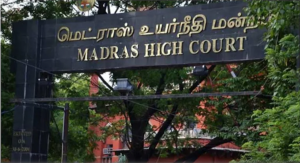 The Madras High Court in the case of Tvl.Vardhan Infrastructure Versus The Special Secretary vide W.P.Nos.34792, 29878, 30607, 30613, 30615 of 2019 & W.P.Nos.3011, 3013, 3026, 3028, 4922, 8495, 8496, 11319 of 2020 & W.P.Nos. 2723, 2861, 2863, 2865, 11004, 11006, 11008, 12795, 12797, 16324 of 2021 and W.P.Nos.4490, 18575, 22552, 26586, 31013 of 2022 and W.P.No.12014 of 2023, held that in the absence of notification for cross-empowerment, action taken by counterparts was without jurisdiction.
The Madras High Court in the case of Tvl.Vardhan Infrastructure Versus The Special Secretary vide W.P.Nos.34792, 29878, 30607, 30613, 30615 of 2019 & W.P.Nos.3011, 3013, 3026, 3028, 4922, 8495, 8496, 11319 of 2020 & W.P.Nos. 2723, 2861, 2863, 2865, 11004, 11006, 11008, 12795, 12797, 16324 of 2021 and W.P.Nos.4490, 18575, 22552, 26586, 31013 of 2022 and W.P.No.12014 of 2023, held that in the absence of notification for cross-empowerment, action taken by counterparts was without jurisdiction.
In this case, The petitioners are assessed by the Central Authorities under the CGST Act, 2017 and have thus challenged the notices issued under Sections 62 and 67 of the TNGST Act, 2017 and orders passed under Sections 73 and 74 of the TNGST Act, 2017 by the State Authorities. The petitioners have challenged the proceedings of the state authorities.’
The dispute in the Writ Petitions has arisen on account of the fact that the petitioners who have been assigned either to the state authorities or to the central authorities for administrative purposes under the provisions of the respective GST enactments are being subjected to proceedings by their counterparts.
The petitioner contended that in the absence of a proper notification under Section 6 of the respective GST enactments for cross-empowerment, the impugned proceedings by the respective counterparts were without jurisdiction.
Section 6(1) of the respective GST enactments empowers the government to issue notifications on the recommendation of the GST Council for cross-empowerment. However, no notification has been issued except under Section 6(1) of the respective GST enactments for the purpose of refund, although officers from the Central GST and State GST are proper officers under the respective GST enactments.
The issue raised was whether the petitioners who are assigned to either the Central Tax Authorities or the State Tax Authorities under the respective Central Goods and Services Tax Act, 2017 and/or TNGST Act, 2017 can be subjected to investigation and further proceedings by their counterparts under the respective GST enactments.
The Court observed that the manner in which the provisions have been designed is to ensure that there is no cross-interference by the counterparts. The only exception provided is under Section 6 of the respective GST enactment. Therefore, in the absence of a notification for cross-empowerment, the actions taken by the respondents are without jurisdiction. Officers under the State or Central Tax Administration, as the case may be, cannot usurp the power of investigation or adjudication of an assessee who is not assigned to them.
It was held that the proceedings initiated by the department so far against the respective petitioners by authorities other than the authority to whom they have been assigned are to be held without jurisdiction. Therefore, the impugned proceedings warrant interference.


